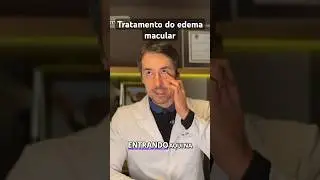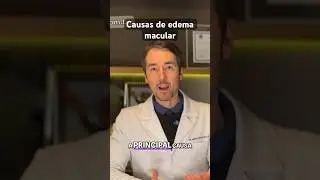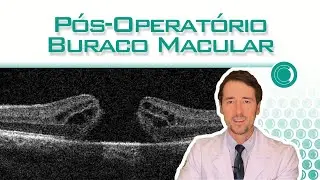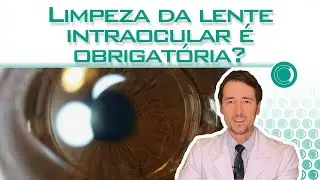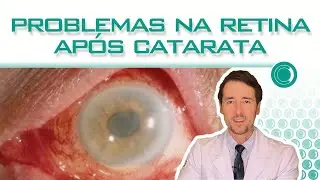Blurred Vision After Retinal Detachment: What Could It Be?
Hello everyone, this is Dr. Mário Bulla, and welcome to Retina e Vítreo, the most complete retina channel on YouTube. Today, we're going to tackle a topic based on a very interesting comment from a follower: distorted vision after retinal detachment surgery. Let's understand what can cause this visual distortion.
What is Metamorphopsia?
Crooked or distorted vision is a symptom known as metamorphopsia. This is not an uncommon problem and can be caused by various retinal conditions, not necessarily related to detachment.
Possible Causes of Metamorphopsia
#### 1. *Epiretinal membrane*
The epiretinal membrane is a film that forms over the macula, the central area of vision. This membrane can contract and distort the retina, leading to crooked vision. It is a common cause of metamorphopsia after retinal detachment.
#### 2. *Cystoid Macular Edema*
Cystoid macular edema is a swelling of the macula that can occur after eye surgery, including retinal detachment. This swelling distorts vision, causing metamorphopsia.
#### 3. **Macular hole
A macular hole is a small flaw in the macula that can develop after a retinal detachment. This hole can cause distorted central vision and requires surgical treatment to correct.
#### 4. *Age-related macular degeneration (AMD)*
AMD affects the macula and can cause neovessels (abnormal blood vessels) that lead to swelling of the retina, resulting in distorted vision. Although it is not directly linked to retinal detachment, it is an important cause of metamorphopsia.
#### 5. *Retinal Position After Surgery*
An interesting aspect that has recently been discussed at medical congresses is that, after a gas vitrectomy, the retina may move into a slightly different position. This small displacement may be imperceptible in traditional examinations, but it can cause metamorphopsia.
Diagnosis and Treatment
If you are experiencing blurred vision after a retinal detachment, it is crucial to talk to your ophthalmologist. Some specific tests, such as autofluorescence, can detect subtle changes in the position of the retina.
**Possible treatments
Epiretinal membrane:** Surgery may be required to remove the membrane.
Macular edema:** Treatments include anti-inflammatory eye drops, corticosteroids or injections of medication such as Ozurdex (dexamethasone).
Macular hole:** Surgery may involve introducing gas into the eye to close the hole.
AMD:** Treatments focus on controlling swelling and preventing the progression of neovessels.
Conclusion
Blurred vision after a retinal detachment can have various causes, and many of them can be treated. It is essential to seek medical advice for an accurate diagnosis and an appropriate treatment plan.
If you liked this content, leave a like, subscribe to the channel and see you in the next video on the Retina e Vítreo channel.
Follow us on instagram: / retina.bulla
This video and its comments are not a substitute for a doctor's consultation and are for educational purposes only. They should not be used for decision-making purposes, which requires a face-to-face consultation with a specialist doctor.
Author:
Dr. Mário César Bulla
Cremers 28120
Ophthalmologist - Retinologist
www.clinicabulla.com.br
www.especialistaemretina.com.br
Instagram: @retina.bulla
Video URL: • Visão torta após descolamento de retina.
@Retina e Vítreo
#retina
#ophthalmology
0:00 Crooked vision after retinal detachment?
0:45 What is metamorphopsia?
1:00 Causes of blurred vision?
1:39 Why vision can become crooked after retinal detachment.










